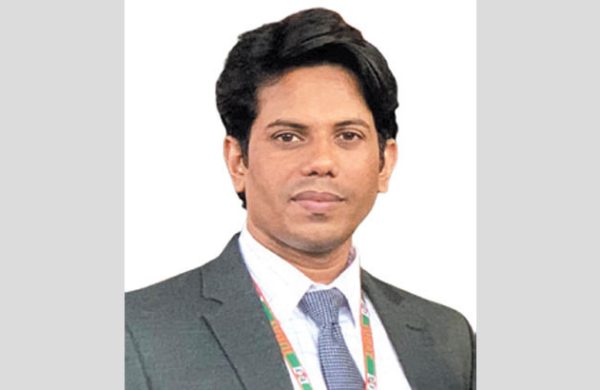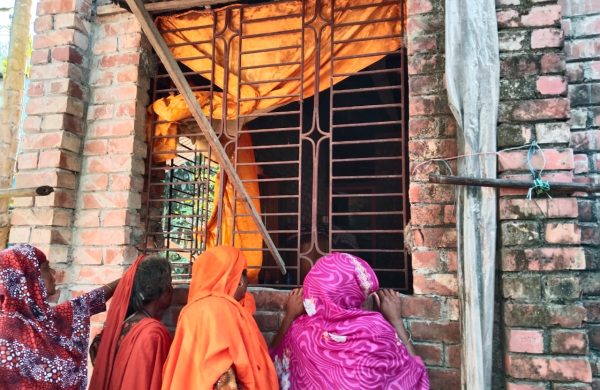DEMOCRACY CAN’T SURVIVE WITHOUT SAVING ECONOMY
- Update Time : Monday, February 24, 2025

—Aditi Karim—
The economy and democracy are complementary, much like the two rails of a railway track. Just as a train cannot run without both rails, a state cannot function without a balanced position between politics and the economy. When politics is unstable, the economy becomes fragile, and conversely, without saving the economy, democracy perishes. Good governance, accountability, and a democratic environment propel the economy forward by fostering investor confidence. Similarly, without a supportive economic environment, democracy faces challenges. Economic stability is essential for the development and sustainability of democracy.
If we review the history of Bangladesh since its independence, we will notice that whenever democracy was destroyed and politics deteriorated, the economy also suffered and collapsed. Similarly, when the economy faltered, democracy couldn’t be preserved. This is not just the history of Bangladesh but the global reality.
For the past 15 and half years, Bangladesh has lacked genuine politics. Under the guise of politics, a de facto one-party authoritarian regime has been established. As a result, the economy hasn’t progressed as it should have; rather, businessmen and industrial entrepreneurs have been compelled to be subservient to the ruling party, with government control prevailing everywhere. It was nearly impossible for businesses to operate without maintaining ties with the ruling party and the government. In that reality, businesspeople, though reluctantly, kept contact with the ruling regime to sustain thousands of jobs, as there was no alternative.
An unprecedented student and public uprising in July last year opened a path for change. This “July Revolution” was a cry for a new Bangladesh. While there are now various discussions about the nature of this new Bangladesh, economic considerations seem to be missing from the discourse.
The government has formed several reform commissions within the first six months of its term. A National Consensus Council has been established to review these commissions’ reports and decide which recommendations to adopt. The council held a meeting on 15 February, where the chief adviser mentioned that the government’s second phase has begun and expressed optimism about holding elections by December. However, the pressing issue of the economy remains neglected. Some government actions have alarmed businesspeople, industrialists, and investors, rendering the private sector sluggish, disheartened, and anxious.
In the past six months under the interim government, there has been no notable economic progress. While corruption investigations from the past continue, the government lacks a clear plan to instill investor confidence and create a business-friendly environment. Our foreign currency reserves now rely entirely on remittances from expatriates, which, while positive, is an unsustainable economic strategy.
The business climate over the past six months has been dismal. No new investments are forthcoming, as entrepreneurs are wary amid the uncertainty. Hundreds of factories have shut down, leaving hundreds of thousands unemployed. Since 5 August, numerous industrial establishments have faced terrorist attacks and vandalism, from which they have yet to recover. The banking sector remains fragile, and despite printing money to inject liquidity into certain banks, they haven’t stabilized. Interest rates are too high to sustain business operations, and severe dollar shortages persist, severely affecting imports, which in turn have impacted exports.
The government has failed to regain the trust of businesspeople. Production has been disrupted due to factory closures, an industrially unfriendly environment, and political instability. Gas and electricity shortages have plunged even operational factories into crisis. Opportunistic groups are fueling hostility against businesspeople, subjecting many industries to harassment, including freezing bank accounts and obstructing normal business activities with accusations of political bias.
It’s crucial to understand that genuine industrialists and businesspeople transcend political affiliations—they work for the nation’s interest. Their initiatives create jobs, drive economic growth, and earn foreign exchange. Unfortunately, businesspeople in Bangladesh are often unfairly targeted and not recognized as nation builders. The political reality here is that ruling parties often try to dominate and exploit them, compelling their loyalty. Businesspeople, facing immense pressure, sometimes join government events to protect their interests and safeguard the livelihoods of millions of workers. Blaming them for this is unjust.
As the country undergoes structural reforms, it is imperative to establish clear policies regarding the government’s relationship with the private sector. Future governments must pledge not to exploit or coerce businesspeople. Entrepreneurs should be able to operate without government lobbying, bribes, or political endorsements. The National Consensus Council must consult established industrial groups and business leaders, acknowledge how past governments misused them, and take corrective measures to protect entrepreneurs from political turmoil.
The heart of Bangladesh’s economy lies in the private sector. Without saving it, democracy cannot be sustained, and the state will face an existential crisis.
_____________________________________
The writer is a columnist and can be reached at [email protected]



















